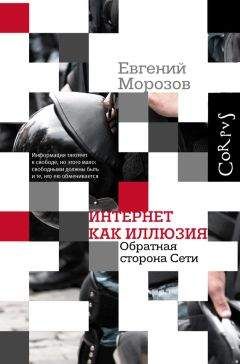Associated Press, July 22, 2010.
Coleman, Peter Thinking About Life: A Brave New World // Uni-ted Press International, July 22, 2002.
Cooper, Robert Freedom for Sale: How We Made Money and Lost Our Liberty by John Kampfner / Democracy Kills by Humphrey Hawksley // Sunday Times, September 6, 2009.
Daly, Peter M., et al., eds. Germany Reunified: A Five– and Fifty-Year Retrospective. New York: P. Lang, 1997.
Darnton, R. Censorship, a Comparative View: France, 1789 – East Germany, 1989 // Representations (1995): 40–60.
Daves, William Is It Aldous Huxley or George Orwell? // New Statesman, August 1, 2005.
Demich, Barbara For Chinese, Getting into Harvard Is a Class Act // Los Angeles Times, June 4, 2010.
Despite Authoritarian Rule, Myanmar Art Grows // New York Times, March 25, 2010.
DeYoung, Karen U. S. Media Campaign Has Failed to Influence Cuba, Senators Say // Washington Post, May 4, 2010.
Dittmar, C. GDR Television in Competition with West German Pro-gramming // Historical Journal of Film, Radio and Television 24, no. 3 (2004): 327–343.
Eickelman, D. F. Islam and the Languages of Modernity // Daeda-lus 129, no. 1 (2000): 119–135.
Farrer, J. A Chinese-Led Global Sexual Revolution // Contexts 7, no. 3 (2008): 58–60.
Forney, Matthew China’s Loyal Youth // New York Times, Ap ril 13, 2008.
For the Young Hillary Rodham, Which Individuals and Books Were Most
Influential? // Pittsburgh Post-Gazette, April 11, 1993. Fukuyama, Francis Our Posthuman Future: Consequences of the Bio-technology Revolution. New York: Farrar, Straus and Giroux, 2002.
Fulbrook, Mary History of Germany, 1918–2000: The Divided Nation. 2nd ed. Malden, MA: Wiley-Blackwell, 2002.
Fung, A. “Think Globally, Act Locally”: China’s Rendezvous with MTV // Global Media and Communication 2, no. 1 (2006): 71. Gleye, Paul Behind the Wall: An American in East Germany, 1988—
1989. Carbondale: Southern Illinois University Press, 1991. Gordon, Wendy J. Listen Up, Ready or Not // New York Times,
November 21, 1993.
Hargittai, E. Digital Na (t) ives? Variation in Internet Skills and Uses Among Members of the Net Generation // Sociological Inqui-ry 80, no. 1 (2010): 92–113.
Havel, VÁclav, et al. The Power of the Powerless: Citizens Against the State in Central-Eastern Europe. John Keane, ed. Armonk, NY: M. E. Sharpe, 1985.
Hendelman-Baavur, L. Promises and Perils of Weblogistan: Online Personal Journals and the Islamic Republic of Iran // Middle East Review of International Affairs 11, no. 2 (2007): 77.
Hesse, K. R. Cross-Border Mass Communication from West to East Germany // European Journal of Communication 5, no. 2 (1990): 355.
Hille, Kathrin, and Robin Kwong Chinese Consumers Opt for Bigger TVs than American Counterparts // Financial Times, Oc-tober 24, 2009.
Hirschman, A. O. Exit, Voice, and the Fate of the German Demo-cratic Republic: An Essay in Conceptual History // World Politics (1993): 173–202.
Hoff, P., and W. MÜhll-Benninghaus Depictions of America in GDR Television Films and Plays, 1955–1965 // Historical Journal of Film, Radio and Television 24, no. 3 (2004): 403–410.
Hoff, P., and L. Willmot Continuity and Change: Television in the GDR from Autumn 1989 to Summer 1990 // German History 9, no. 2 (1991): 184.
Huxley, Aldous Brave New World and Brave New World Revisited. New York: HarperCollins, 2004.
Iran Pours Oil Fund Billions into Wooing Disaffected Youth // Indepen-dent, September 1, 2005.
Junker, Detlef, and Philipp Gassert The United States and Germany in the Era of the Cold War, 1945–1990: A Handbook. Vol. 1. New York: Cambridge University Press, 2004.
Kampfner, John Freedom for Sale: How We Made Money and Lost
Our Liberty. Kindle edition. New York: Simon & Schuster, 2009. Kellner, D. From 1984 to One-Dimensional Man: Critical Reflections on Orwell and Marcuse // Current Perspectives in Social Theory 10 (1990): 223–252.
Kern, H. L. Foreign Media and Protest Diffusion in Authoritarian Re-gimes: The Case of the 1989 East German Revolution // Compara-tive Political Studies, March 16, 2010.
Kern, H. L., and J. Hainmueller Opium for the Masses: How Foreign Media Can Stabilize Authoritarian Regimes // Political Analysis 17, no. 4 (2009): 377–399.
Khiabany, G. Iranian Media: The Paradox of Modernity // Social Semiotics 17, no. 4 (2007): 479–501.
Klein, Naomi China’s All-Seeing Eye // Rolling Stone, May 14, 2008. KohÁk, E. Ashes, Ashes… Central Europe After Forty Years //
Daedalus 121, no. 2 (1992): 197–215.
Korosteleva, Elena Was There a Quiet Revolution? Belarus After the 2006 Presidential Election // Journal of Communist Studies and Transition Politics 25, no. 2 (June 2009): 324–346.
Kraidy, M. M. Reality TV and Multiple Arab Modernities: A Theoreti-cal Exploration // Middle East Journal of Culture and Communi-cation 1, no. 1 (2008): 49–59.
Lagerkvist, J. Internet Ideotainment in the PRC: National Responses to Cultural Globalization // Journal of Contemporary China 17, no. 54 (2008): 121–140.
Manaev, Oleg The Influence of Western Radio on the Democra-tization of Soviet Youth // Journal of Communication 41, no. 2 (June 1991): 72–91.
Marcuse, Herbert One-Dimensional Man: Studies in the Ideology of Advanced Industrial Society. New York: Routledge, 2002.
Maza, Erik Cuban Commies Give Avatar the Thumbs-Down // Mi-ami New Times, February 18, 2010.
Meyen, M., and W. Hillman Communication Needs and Media Change: The Introduction of Television in East and West Germany // European Journal of Communication 18, no. 4 (2003): 455.
Meyen, M., and U. Nawratil The Viewers: Television and Every-day Life in East Germany // Historical Journal of Film, Radio and Television 24, no. 3 (2004): 355–364.
Meyen, M., and K. Schwer Credibility of Media Offerings in Cen-trally Controlled Media Systems: A Qualitative Study Based on the Example of East Germany // Media, Culture & Society 29, no. 2 (2007): 284.
Miller Llana, Sara Cuba’s Youth: Restless but Not Often Political // Christian Science Monitor, July 26, 2008.
Mirsky, Jonathan Vietnam Now // New York Review of Books, June 24, 2010.
Mobile Phones Change Dating Habits as Saudis Search for New Iden-tity // Irish Times, March 3, 2009.
Moore, Matthew China to Lead World Scientific Research by 2020 // Daily Telegraph, January 25, 2010.
Mostaghim, Ramin, and Borzou Daragahi Iran’s Other
Youth Movement // Los Angeles Times, June 10, 2007. Murphy, Caryle Saudi Women Revel in Online Lives // Global
Post, February 4, 2010. www.globalpost.com/dispatch/saudi-ara-bia/100203/internet-women.
Nelson, Michael War of the Black Heavens: The Battles of Western Broadcasting in the Cold War. Syracuse, NY: Syracuse University Press, 1997.
Orwell, George 1984. New York: Signet Classic, 1977.
Pfaff, S., and H. Kim Exit-Voice Dynamics in Collective Action: An Analysis of Emigration and Protest in the East German Revolution // American Journal of Sociology 109, no. 2 (2003): 401–444.
Porn Dominates Saudi Mobile Use // BBC News, April 25, 2007. Posner, R. A. Orwell Versus Huxley: Economics, Technology, Privacy, and Satire // Philosophy and Literature 24, no. 1 (2000): 1–33.
Postman, Neil Amusing Ourselves to Death: Public Discourse in the Age of Show Business. Twentieth anniversary edition. New York: Penguin Books, 2006.
Prior, Markus Post-Broadcast Democracy: How Media Choice In-creases Inequality in Political Involvement and Polarizes Elections. New York: Cambridge University Press, 2007.
Problems of Communism. Vol. 12. Washington, DC: Documentary Studies Section, International Information Administration, U. S. De-partment of State, 1963.
Quester, George H. Before and After the Cold War: Using Past
Forecasts to Predict the Future. Portland, OR: Frank Cass, 2002. Rantanen, T. The Old and the New: Communications Techno logy and
Globalization in Russia // New Media & Society 3, no. 1 (2001): 85. Rosen, S. The Victory of Materialism: Aspirations to Join China’s Ur-ban Moneyed Classes and the Commercialization of Education // China Journal (2004): 27–51.
Rosenstiel, Thomas B. TV, VCRs Fan Fire of Revolution // Los Angeles Times, January 18, 1990.
Roth, Philip A Conversation in Prague // New York Review of Books, April 12, 1990.
Rueschemeyer, Marilyn, and Christiane Lemke The Quality of Life in the German Democratic Republic: Changes and Developments in a State Socialist Society. Armonk, NY:
M. E. Sharpe, 1989.
Russian Internet Users Care Most About Love, Weight Losing // Associ-ated Press, March 22, 2010.
Schielke, S. Boredom and Despair in Rural Egypt // Contemporary Islam 2, no. 3 (2008): 251–270.
Schwoch, J. Cold War Telecommunications Strategy and the Question of German Television // Historical Journal of Film, Radio and Television 21, no. 2 (2001): 109–121.
Semuels, Alana Unlikely Forum for Iran’s Youth // Los Angeles Times, January 2, 2008.
Sex, Social Mores, and Keyword Filtering: Microsoft Bing in the “Arabian Countries” // OpenNet Initiative, March 4, 2010. opennet.net/ sex-social-mores-and-keyword-filtering-microsoft-bing-arabian-countries.
Snyder, Alvin A. Warriors of Disinformation: American Propaganda,
Soviet Lies, and the Winning of the Cold War. New York: Arcade, 1997. Sola Pool, Ithiel de Communication in Totalitarian Societies /
In: Handbook of Communication, ed. by Sola Pool, Ithiel de, Schramm, W., Maccoby, N., and E. Parker, 463–474. Chicago: Rand McNally, 1973.
Sreberny, A. The Analytic Challenges of Studying the Middle East and its Evolving Media Environment // Middle East Journal of Culture and Communication 1, no. 1 (2008): 8–23.
Sreberny-Mohammadi, A. Small Media for a Big Revolution: Iran // International Journal of Politics, Culture, and Society 3, no. 3 (1990): 341–371.
Sullivan, Kevin Saudi Youth Use Cellphone Savvy to Outwit the
Sentries of Romance // Washington Post, August 6, 2006. Sydell, Laura Chinese Fans Follow American TV Online – for Free //
National Public Radio, June 24, 2008.
Tait, Robert Iran Launches First Online Supermarket // Guardian, February 4, 2010.
Talbot, David Bing Dinged on Arab Sex Censorship // Technology Review Editors’ Blog, March 4, 2010. www.technologyreview.com/ blog/editors/24891/?utm_source=twitterfeed&utm_medium =twitter.
Thussu, Daya Kishan News as Entertainment: The Rise of Global Infotainment. Thousand Oaks, CA: Sage, 2007.
Trachtenberg, Jeffrey A. Philip Roth on “The Humbling” // Wall Street Journal, October 30, 2009.
Vietnam to Offer Movies about Sex on Internet // Reuters, July 20, 2006.
Wang, X. The Post-Communist Personality: The Spectre of China’s Capitalist Market Reforms // China Journal (2002): 1–17.
Web Link to China Teen Pregnancy // BBC News, July 10, 2007. Weitz, Eric D. Creating German Communism, 1890–1990: From
Popular Protests to Socialist State. Princeton, NJ: Princeton Uni-versity Press, 1997.
Wheary, Jennifer The Global Middle Class Is Here: Now What? // World Policy Journal 26, no. 4 (January 2010): 75–83.
Wilson, Ben What Price Liberty? London: Faber & Faber, 2009. Zhang, L. L. Are They Still Listening? Reconceptualizing the Chinese
Audience of the Voice of America in the Cyber Era // Journal of Ra-dio Studies 9 (2002): 317.
Глава 4. Чего хотят цензоры
Гликин, М., Костенко Н. Чудо возможно // Ведомости,
15 февраля 2010 года. Легезо, Д. Медведев читает свой ЖЖ и решает проблемы //
CNews, 8 октября 2009 года. www.cnews.ru/news/top/index. shtml?2009/10/08/364944.
Сергей Миронов предлагает ведущим пользователям Рунета и блогерам выработать правила сетевой цензуры // ИА Прайм-ТАСС, 30 сентября 2009 года. en.rian.ru/russia/20100126/157686584.html.
У Дмитрия Медведева появился iPad // Lenta.ru, 18 мая 2010 года. www.lenta.ru/news/2010/05/18/ipad/.
Adams, P. C. Protest and the Scale Politics of Telecommunications //
Political Geography 15, no. 5 (1996): 419–441.
Agre, P. E. Real-Time Politics: The Internet and the Political Process //
Information Society 18, no. 5 (2002): 311–331.
Al Hussaini, Amira Arabeyes: No to “Offensive’ Blogs” // Global
Voices, February 14, 2008.
Albrecht, H. How Can Opposition Support Authoritarianism? Les-sons From Egypt // Democratization 12, no. 3 (2005): 378–397. Ameripour, Aghil, Nicholson, Brian, and Michael
Newman Internet Usage Under Authoritarian Regimes: Convivi-ality, Community, Blogging and Online Campaigning in Iran //
IDPM Working Paper 43 (2009). www.sed.manchester.ac.uk/ idpm/research/publications/wp/di/di_Wp43.htm.
Anger in China over Web Censorship // BBC News, June 30, 2009. Arkhipov, Ilya, and Lyubov Pronina Putin Fire Webcams





